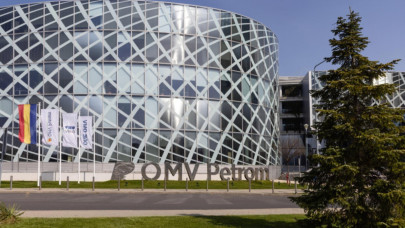How does Restart Energy integrate ESG principles into its business model and decision-making processes?
At Restart Energy, the integration of ESG principles is central to our mission and operational strategy. We recognize that sustainable growth hinges on responsible environmental stewardship, social responsibility, and robust governance structures.
Environmentally, we are deeply committed to reducing carbon emissions by focusing our investments exclusively on renewable energy projects such as solar parks and photovoltaic installations for commercial and industrial clients. By harnessing solar energy, we provide clean and sustainable power solutions that significantly lower greenhouse gas emissions. This strategic focus not only minimizes our ecological footprint but also accelerates the global transition towards a low-carbon economy.
Socially, we prioritize the well-being of our employees, customers, and the communities we serve. We aim to create sustainable jobs and support local economic development, we run social projects to support education, schools, NGOs, and families and improve the quality of life. Our decision-making processes actively consider the social impact of our operations, ensuring that we contribute positively to society.
From a governance standpoint, we uphold the highest standards of transparency, accountability, and ethical conduct. Our corporate governance policies are designed to foster integrity and trust, with a strong emphasis on compliance and risk management. By embedding ESG principles into every facet of our business model, we not only enhance our operational efficiency but also build long-term value for our stakeholders.
What are some regulatory challenges you face in promoting green energy solutions, and how does the company navigate these obstacles?
Navigating the regulatory landscape in the green energy sector presents several challenges, primarily due to the varying policies and standards across different jurisdictions. Inconsistent regulations can hinder the implementation of renewable energy projects and create uncertainty for long-term investments. Additionally, bureaucratic hurdles and lengthy approval processes can delay project timelines and increase costs.
To overcome these obstacles, Restart Energy actively engages with regulatory bodies and policymakers to advocate for clear, consistent, and supportive regulations that facilitate the adoption of green energy solutions. We participate in industry forums and collaborate with other stakeholders to share insights and best practices. Our legal and compliance teams continuously monitor regulatory developments to ensure that we adapt swiftly to changes and maintain full compliance.
Furthermore, we invest in education and awareness campaigns to highlight the benefits of renewable energy, aiming to influence policy positively and encourage a more favorable regulatory environment. By proactively addressing regulatory challenges, we position ourselves to capitalize on opportunities and drive the growth of green energy.
What trends in the green energy sector do you foresee having the biggest impact on Restart Energy in the next five years?
Over the next five years, several key trends are poised to significantly impact Restart Energy. Firstly, advancements in energy storage technologies, such as battery storage and smart grid solutions, will enhance the reliability and efficiency of renewable energy systems. This will enable us to offer more resilient and flexible energy solutions to our customers.
Secondly, the digitalization of the energy sector is set to revolutionize how energy is produced, distributed, and consumed. Innovations like blockchain technology and Internet of Things (IoT) devices will facilitate peer-to-peer energy trading and real-time energy management. Restart Energy is at the forefront of this digital transformation, developing platforms that increase transparency and empower consumers.
Thirdly, increasing global emphasis on sustainability and carbon neutrality will drive demand for renewable energy. As governments and corporations commit to ambitious climate targets, the need for clean energy solutions will expand, presenting significant growth opportunities for our company.
Lastly, we anticipate that supportive policy frameworks and financial incentives for renewable energy investments will become more prevalent. This will reduce barriers to entry and make green energy projects more economically viable. By staying ahead of these trends and continuously innovating, Restart Energy is well-prepared to lead and thrive in the evolving green energy landscape.
The company recently completed a €900,000 photovoltaic project in Alba County. What other green energy investment plans do you have for both 2024 and 2025? What are your plans?
At a high level, we're focused on pushing our integrated model forward. It's a renewable energy services platform designed to offer full-spectrum, 360-degree solutions within the industry.
Looking ahead to 2024, our main priority is executing our growth strategy in the EPC division. A big part of that is transitioning from rooftop installations to utility-scale projects. This shift will help us better leverage our engineering expertise, maximize economic value, and scale much more rapidly.
On the upstream side, we're actively working on developing our 1 GW pipeline of projects, which is a key part of our growth targets. One of the biggest milestones for us is the M&A process for a 500 MW project, which we're aiming to finalize by the end of the year.
In 2025, we have set ambitious goals to accelerate our growth, particularly within the EPC sector, where we see significant potential. One of our key priorities will be to expand our capabilities in providing Operation & Maintenance (O&M) services at a national scale. This is a critical area for us, as scaling O&M services will not only enhance the value proposition for our existing clients but also open new revenue streams.
Another major target for the year is building at least 100 MW of solar energy capacity. Solar is at the forefront of our renewable energy efforts, and achieving this milestone will be instrumental in reinforcing our position as a leader in the market. The 100 MW target represents more than just capacity—it's about scaling our expertise and creating a template for larger projects in the future.
Simultaneously, we are looking to reignite our energy supply business line, with a sharp focus on the industrial client segment. The industrial market holds substantial untapped potential, and we believe that our experience and deep understanding of their specific energy needs positions us well to serve them. By expanding our footprint in this segment, we expect to build a stable, diversified revenue stream that complements our renewable energy projects.
On the upstream side, we're aiming to further develop our pipeline, adding another 1 GW of projects. This is in line with our broader vision to scale our development capabilities and capitalize on the growing demand for renewable energy solutions. The pipeline will serve as a foundation for our long-term strategy and provide the flexibility needed to adapt to market changes.
We see 2025 as a pivotal year, where each of these initiatives—accelerating our EPC growth, expanding O&M services, building solar capacity, scaling our energy supply business, and growing our upstream portfolio—will converge to fuel sustained growth and position us strongly for the future. The combination of these efforts will allow us to solidify our role as a key player in the renewable energy space, while also delivering value to both our clients and stakeholders.
How difficult is it for companies to attract finance for green energy and what are the main obstacles?
The answer is multifaceted, as green energy cannot be treated as a homogenous sector. Within it, there are numerous sub-sectors, each presenting its distinct opportunities and challenges. However, the key question isn't necessarily "how difficult is it?" but rather "why is it difficult?"
One of the main obstacles—though significantly improved in the past year—has been the lack of energy sector expertise at the lender level. Additionally, a significant challenge lies in the limited sophistication of financial structuring and, at times, the inability or reluctance to adapt proven financial models to local market conditions.
A notable bright spot is Romania's capital markets, where we've seen successful equity offerings, such as Hidroelectrica and Premier Energy. On the debt side, we've had success as well, notably with our second bond issuance this year.
Looking ahead, we are confident that conditions will continue to improve, with a blend of traditional lending and capital markets providing the necessary financing solutions to enable local players to scale and grow.
What are the long-term goals for Restart Energy regarding renewable energy production and overall sustainability and how do you plan to achieve them?
At Restart Energy, our long-term goals center around driving significant growth in renewable energy production while embedding sustainability into every facet of our operations. We aim to play a key role in the energy transition by not only increasing the volume of clean energy we produce but also ensuring that our solutions help decarbonize industries and communities on a large scale.
One of our main objectives is to expand our renewable energy capacity to over 1 GW by 2030. Solar energy is a core focus for us, and we plan to continue scaling up our development projects in this area. By consistently building utility-scale solar farms and other renewable projects, we will not only contribute to meeting the rising demand for clean energy but also help reduce carbon emissions in the markets we serve.
To achieve this, we are leveraging our engineering expertise and EPC capabilities, which are integral to delivering high-quality, scalable renewable projects. We are also committed to investing in cutting-edge technologies such as energy storage and smart grid solutions, which will improve the reliability and efficiency of renewable energy and enable us to integrate more clean power into the grid.
On the sustainability front, our strategy is built on more than just energy production. We are focused on reducing our carbon footprint and helping our clients do the same by offering comprehensive energy solutions, including energy management services and carbon reduction programs. Expanding our Operation & Maintenance (O&M) services at a national scale is part of this effort, as it allows us to maximize the efficiency and longevity of the renewable assets we manage.
In addition, our energy supply business is evolving with a stronger emphasis on serving industrial clients. By helping businesses transition to green energy through tailored supply contracts and energy efficiency solutions, we can support the decarbonization of some of the most energy-intensive sectors of the economy.
Ultimately, our goal is to build a sustainable energy ecosystem that not only meets today's energy needs but also aligns with global sustainability targets. We believe that by expanding our renewable capacity, advancing innovative energy solutions, and maintaining a strong focus on environmental responsibility, Restart Energy will play a pivotal role in shaping a more sustainable energy future.














